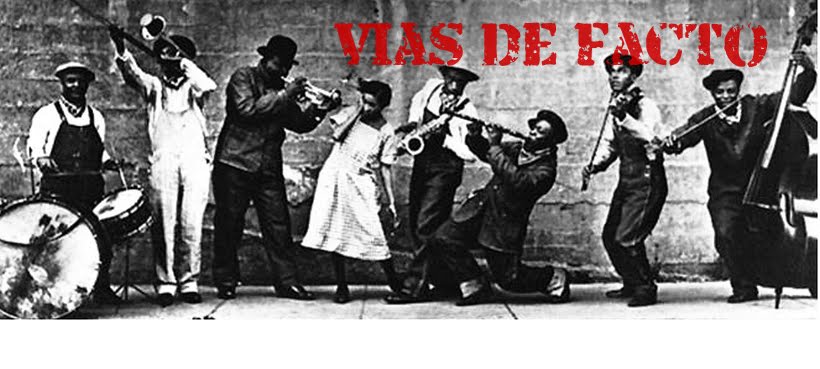Nathan Schneider aborda neste texto as similitudes ideológicas entre o colectivo Anonymous e o movimento Occupy. Tal como já tinha referido aqui, ambos são sintoma de uma mudança fundamental na ideologia prevalecente, sobretudo entre as gerações mais recentes. Depois de, durante várias décadas, a ideia de comum e colectivo ter perdido força, em detrimento dum individualismo egoísta, exacerbado e exibicionista, assistimos ao seu renascimento por via das possibilidades colaborativas abertas pelo desenvolvimento digital. Não estamos, no entanto, a voltar às ideologias colectivistas dominantes durante grande parte do século passado, que advogavam a manutenção (mesmo que por vezes apenas "transitoriamente") de estruturas hierárquicas de Poder. Como Nathan Schneider descreve neste seu outro texto,
"(...)in the words of Occupy Wall Street’s Principles of Solidarity, the basic unit of political life is not the ballot box but “autonomous political beings engaging in direct and transparent participatory democracy.” Though they might be wired to the teeth, the political beings of Planet Occupy carry out their democracy face to face, in well-coordinated small groups that operate by consensus. It’s “participatory as opposed to partisan,” adds the Statement of Autonomy, suggesting that the aim on Planet Occupy is for all voices to be heard, rather than for one party to prevail over others. Those with “inherent privilege” defer whenever possible to others. The consolidation of power is discouraged, and resisted when necessary.(...)"
Não é assim surpreendente alguma dificuldade de comunicação e entendimento entre as novas estruturas em desenvolvimento, e os tradicionais colectivos de resistência à ordem prevalecente, como partidos e sindicatos. De entre os novos colectivos, Anonymous destingue-se pela sua radicalidade (não-)organizativa, e pela sua capacidade para minar a resposta repressiva do sistema, destabilizando as suas linhas de comunicação e tornando transparente o seu funcionamento. Gabriella Coleman publicou recentemente um interessantíssimo texto sobre o colectivo Anonymous, do qual destaco o parágrafo final:
"One of Occupy Wall Street’s most powerful gestures has been to position its radically democratic decision-making process, represented by the agora of the General Assembly, against the reining corporate kleptocracy. Though this brand of horizontalism has a rich history with many roots, there is a particularly strong resonance in the relationship between the formal structure and the political aspirations of Anonymous. And Anonymous is organized not only around a radical democratic (at times chaotic and anarchic) structure but also around the very concept of anonymity, here constituted as collectivity. The accumulation of too much power—especially in a single point in (virtual) space—and prestige is not only taboo but functionally very difficult. The lasting effect of Anonymous may have as much to do with facilitating alternative practices of sociality—upending the ideological divide between individualism and collectivism—as with attacks on monolithic banks and sleazy security firms. This is the nature of the threat posed by Anonymous, and it is aptly symbolized by the Guy Fawkes mask: a caricature of the face of a sixteenth-century British failed regicide and the namesake of a holiday marked by bonfires celebrating the preservation of the monarchy; used by a dystopian comic book and then Hollywood film as the visage of anarchist terrorism and now turned into an icon of resistance—everything and nothing at once."
Occupy Wall Street from triple canopy on Vimeo.








0 comentários:
Enviar um comentário